
The medical advisor at Tactical Medical Solutions shared insights from both clinical and personal perspectives on the importance of empathy and active listening in managing Parkinson disease. [WATCH TIME: 3 minutes]

The medical advisor at Tactical Medical Solutions shared insights from both clinical and personal perspectives on the importance of empathy and active listening in managing Parkinson disease. [WATCH TIME: 3 minutes]

Mind Moments®, a podcast from NeurologyLive®, brings you an exclusive interview with Joseph Sullivan, MD. [LISTEN TIME: 14 minutes]

A recent survey reveals critical gaps in neurology training on women's health, highlighting the need for urgent curriculum reforms in medical education.

New findings reveal eptinezumab significantly reduces migraine days and medication use in chronic migraine patients, offering hope for effective treatment.
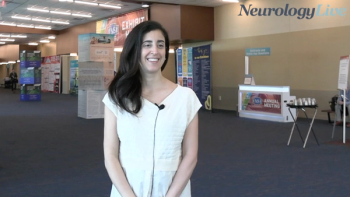
The assistant professor in the Department of Neuroscience at Université de Montréal discussed the importance of weighing the risks of multiple sclerosis against treatment risks, emphasizing individualized care. [WATCH TIME: 4 minutes]

Chia-Chun Chiang, MD, associate professor of neurology at Mayo Clinic Rochester, discussed how AI-based ECG and imaging tools can aid in predicting stroke and cardiovascular outcomes in patients with migraine.

New data reveals vidofludimus calcium effectively maintains low disability progression in relapsing-remitting multiple sclerosis over 144 weeks, enhancing patient quality of life.

The consultant neurologist at Torbay and Southern Devon Healthcare NHS Foundation Trust discussed the implementation of digital platforms and lifestyle-focused clinics to streamline MS care. [WATCH TIME: 5 minutes]

Grace Therapeutics submits NDA for GTx-104, a promising IV treatment for aSAH, aiming to revolutionize patient care and improve outcomes.

The chair of neurology at the University of South Carolina discussed findings from a study recently presented at AHS 2025 that linked migraine to autonomic dysfunction, increased risk of atrial fibrillation, and cardioembolic stroke. [WATCH TIME: 5 minutes]

The professor of neurology at the Geisel School of Medicine at Dartmouth broke down the clinical utility, supporting data, and practical use cases for STS101, a newly approved nasal powder formulation of dihydroergotamine for acute migraine.

The FDA expands Vizamyl's use for Alzheimer diagnosis and therapy monitoring, enhancing patient care with precise amyloid quantification.

Skyhawk Therapeutics initiates FALCON-HD trial for SKY-0515, a promising treatment for Huntington disease, aiming to modify disease progression.
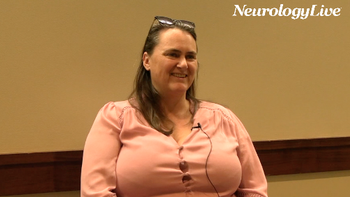
The postdoctoral researcher at the Woolcock Institute of Medical Research highlighted EEG-based evidence supporting ALKS 2680's wake-promoting effects in patients with narcolepsy and idiopathic hypersomnia. [WATCH TIME: 3 minutes]
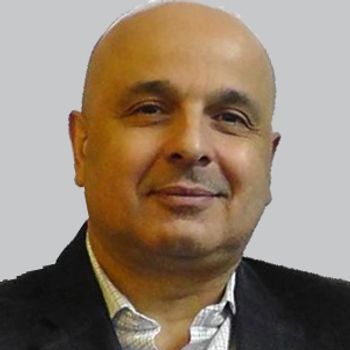
Fremanezumab shows significant long-term effectiveness in reducing migraine frequency and severity, enhancing patient outcomes in chronic and episodic cases.
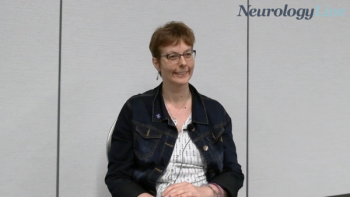
The neurologist and headache specialist at the Montreal Neurological Clinic spoke about a recent national survey presented at AHS 2025 that revealed insightful patient perspectives in migraine. [WATCH TIME: 5 minutes]

Efgartigimod alfa SC is now approved in Europe for patients with chronic inflammatory demyelinating polyneuropathy, following a positive recommendation from the Committee for Medicinal Products for Human Use.

The professor of neurology at the Geisel School of Medicine at Dartmouth broke down the FDA approval of STS101, a new DHE nasal powder, and its implications for acute migraine care. [WATCH TIME: 7 minutes]

Jennifer Robblee, MD, MSc, headache neurologist at the Barrow Neurological Institute, talked about an expert panel that developed a consensus definition for refractory migraine.

Experts in ALS care and research shared their optimism about emerging treatments, aiming to deepen scientific understanding, and the potential role of advocacy in accelerating progress. [WATCH TIME: 4 minutes]

Veronica Hood, PhD, chief scientific officer at the Dravet Syndrome Foundation, discussed the evolving care landscape of Dravet syndrome, highlighting breakthroughs in precision medicine and promising new therapies for patients.

Nathaniel M. Schuster, MD, associate clinic director at the UC San Diego, talked about findings from a study of vaporized cannabis in treating patients with acute migraine presented at AHS 2025.

Here's some of what is coming soon to NeurologyLive® this week.

Laura Sebrow, PhD, a post doctoral neuropsychology fellow at North Shore University Hospital, discussed the relationship between patients’ reported cognitive difficulties and measurable cognitive performance during different migraine phases.

Experts discussed the ongoing importance of awareness, funding, and early diagnosis in amyotrophic lateral sclerosis, welcoming the return of the well-known Ice Bucket Challenge. [WATCH TIME: 5 minutes]

Test your neurology knowledge with NeurologyLive®'s weekly quiz series, featuring questions on a variety of clinical and historical neurology topics. This week's topic is on pediatric neurology.

Marcela Romero-Reyes, DDS, PhD, FAHS, director of the Brotman Facial Pain Clinic at the University of Maryland, discussed a promising and potentially safer therapeutic approach for managing trigeminal neuropathic pain.

Clinicians reflected on the unique, patient-centered format of the ALS Nexus conference and its potential role in accelerating ALS research and promoting care collaboration. [WATCH TIME: 4 minutes]
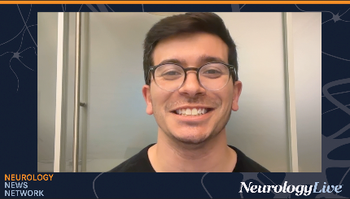
Neurology News Network. for the week ending June 21, 2025. [WATCH TIME: 4 minutes]

Take 5 minutes to catch up on NeurologyLive®'s highlights from the week ending June 20, 2025.